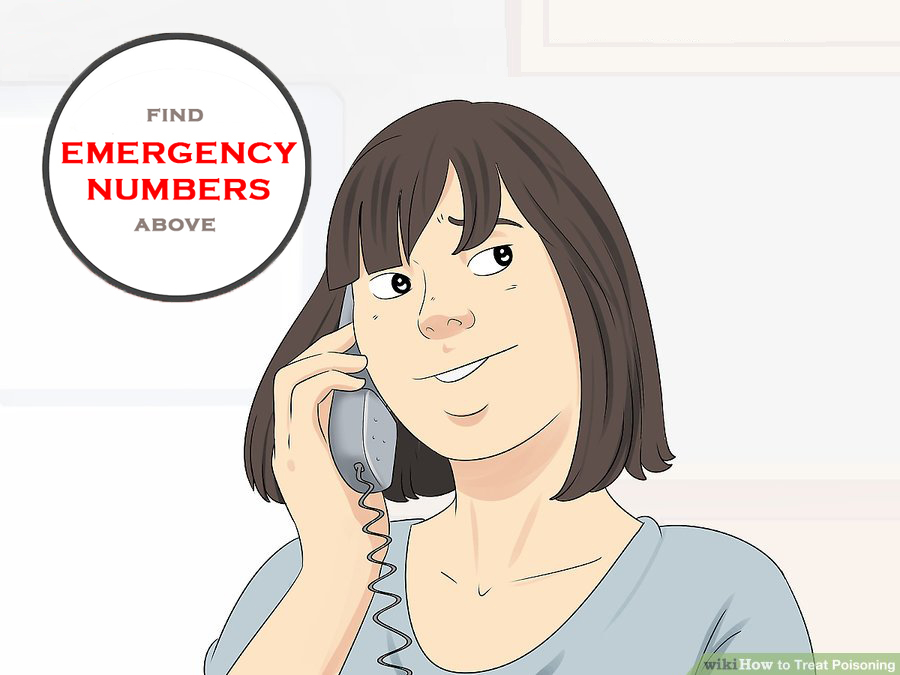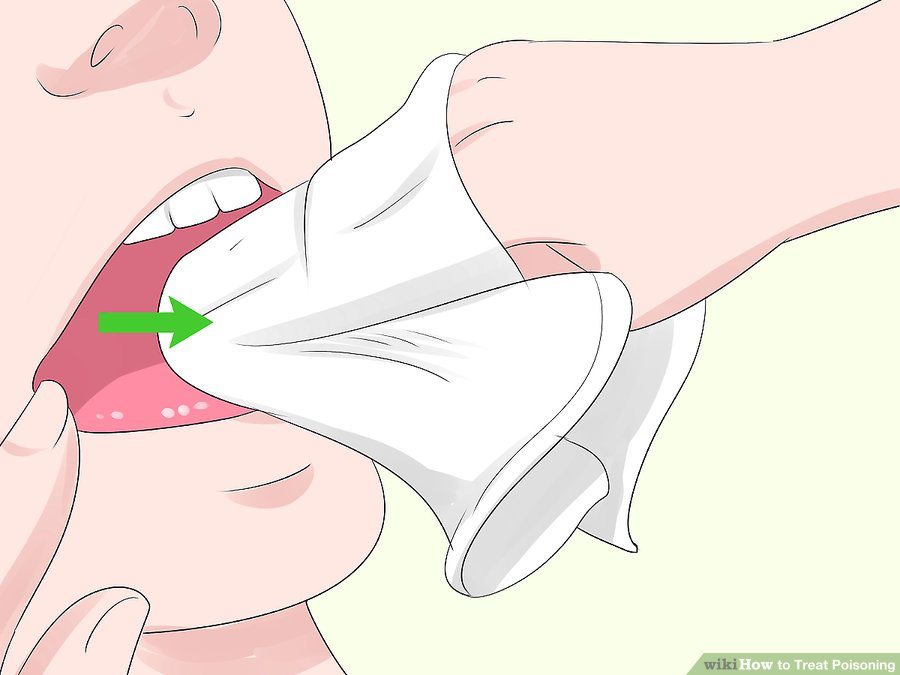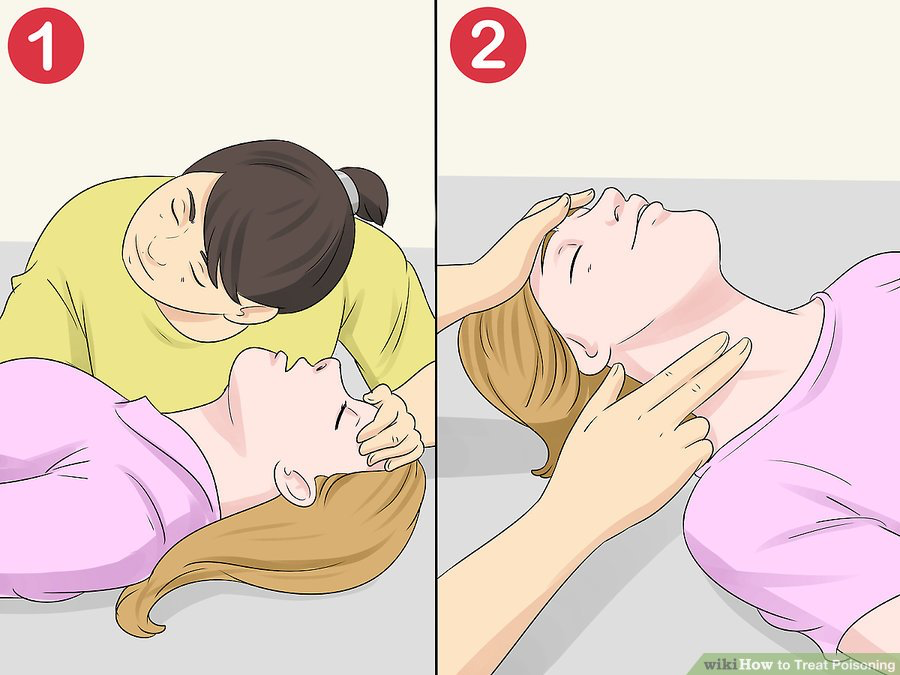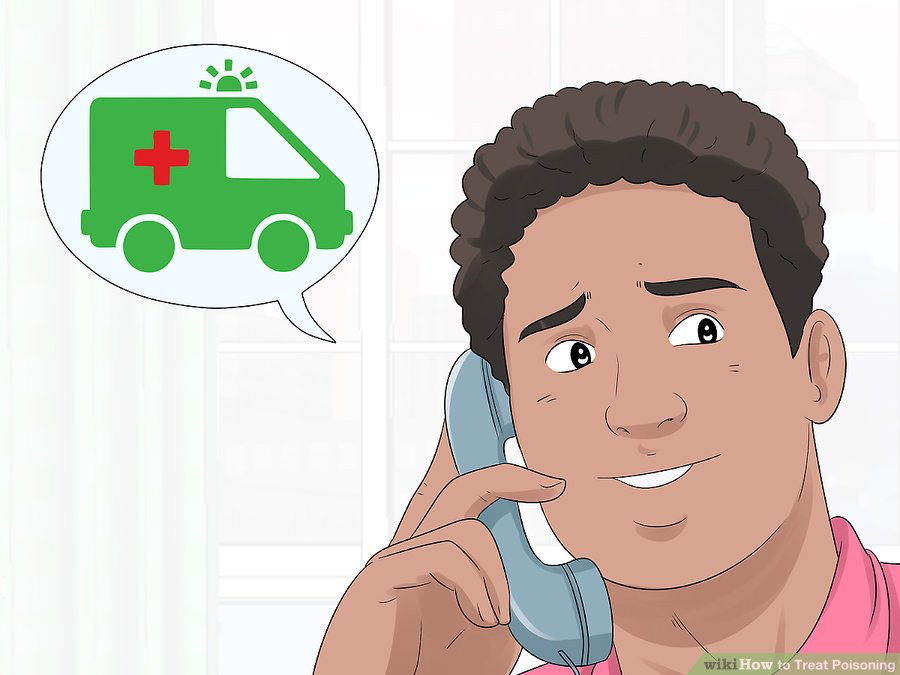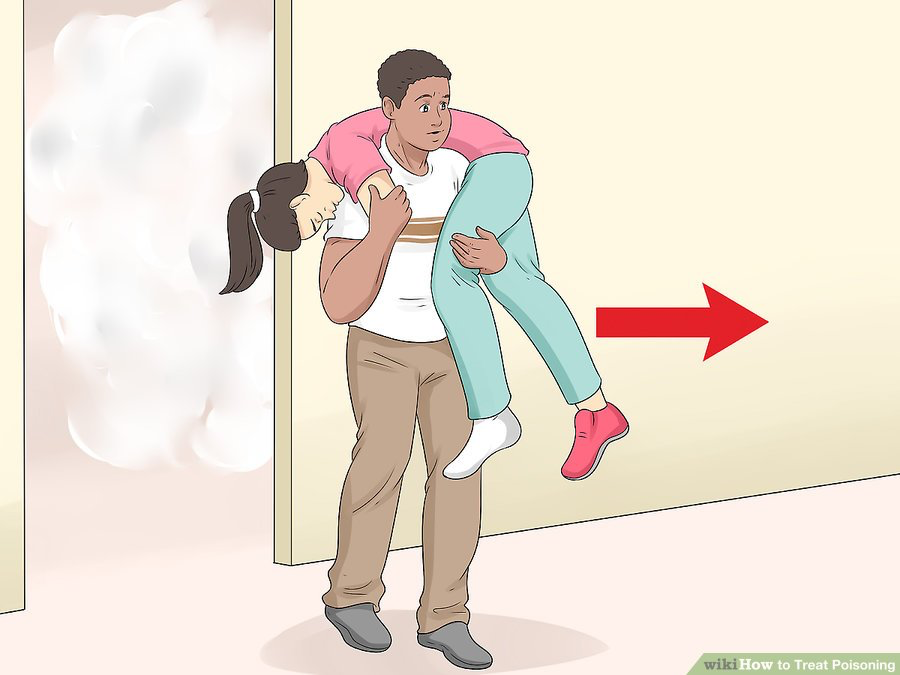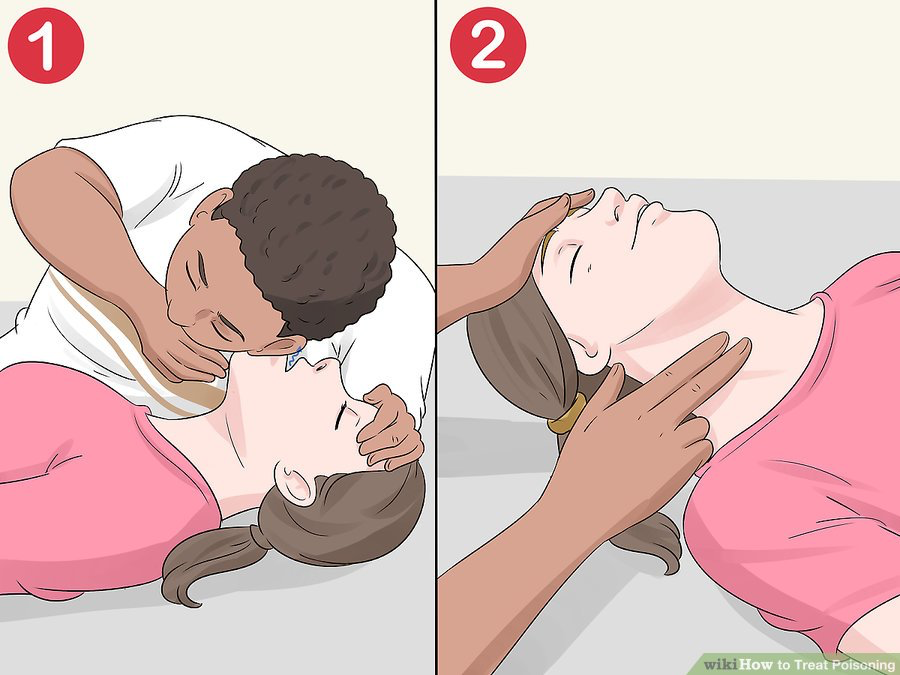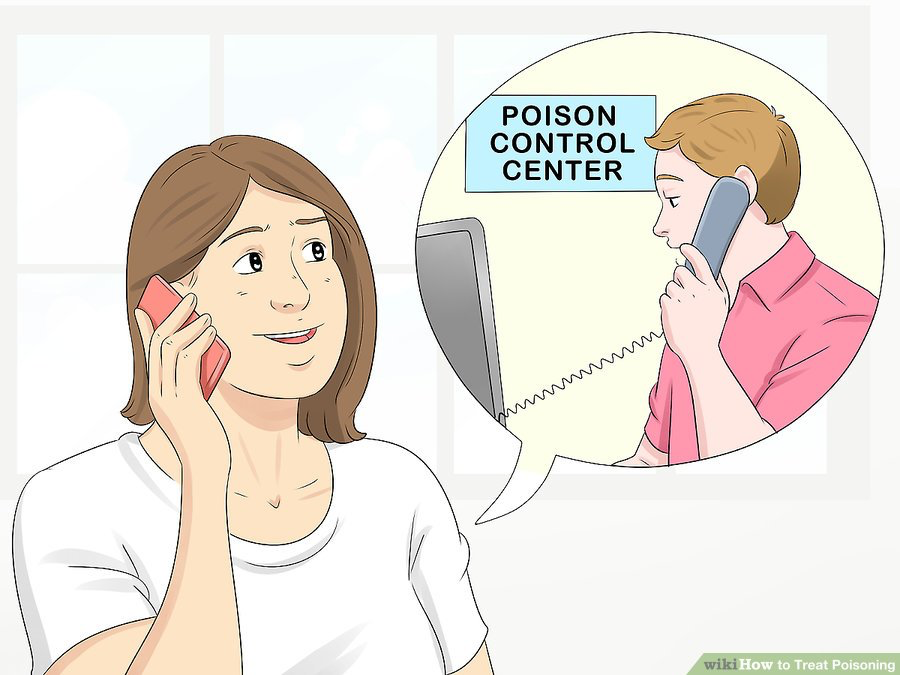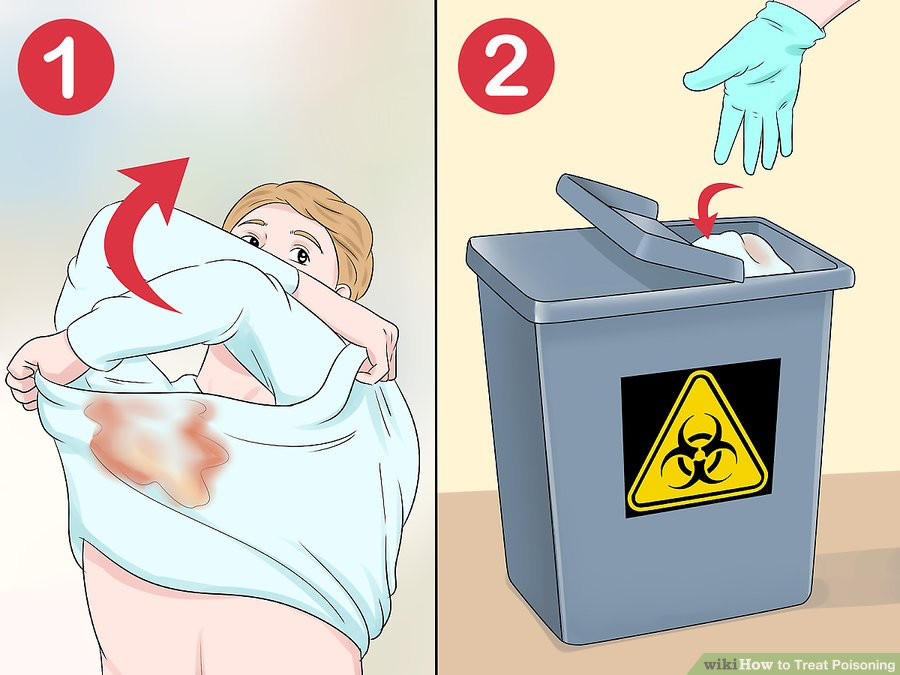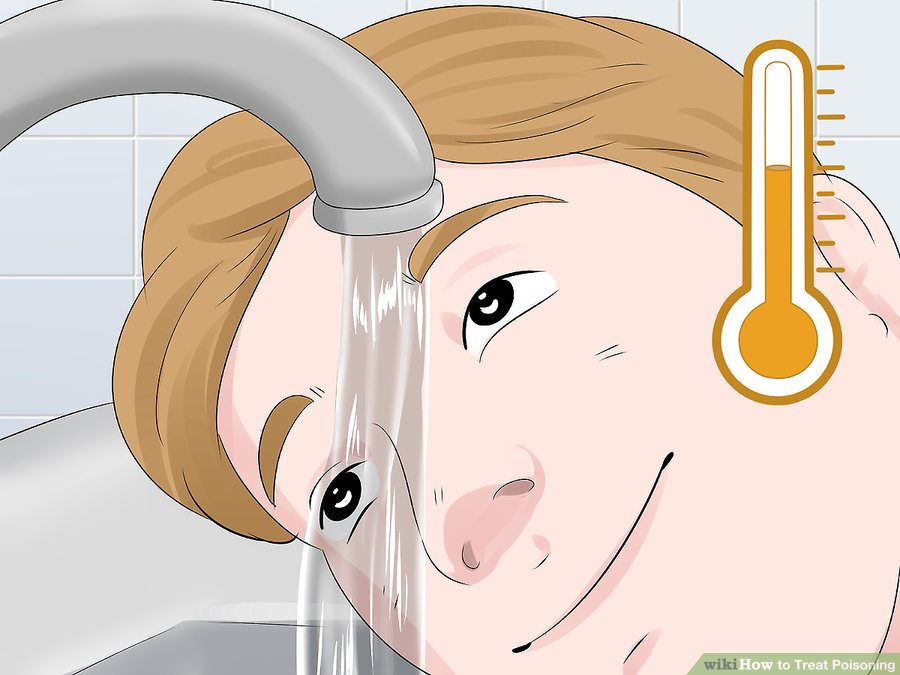Back First Aid Explained
How to Treat Poisoning
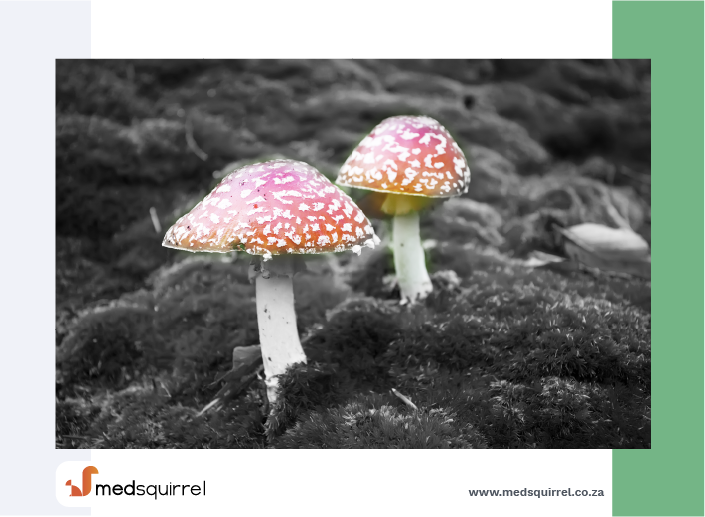
We have selected the following expert medical opinion based on its clarity, reliability and accuracy. Credits: Sourced from the website wikiHow. Please refer to your own medical practitioner for a final perspective, assessment or evaluation.
Overview
Poisoning by way of household substances, toxic berries, dangerous fumes, and other sources leads to thousands of hospitalizations every year. Knowing how to handle the situation quickly and effectively can mean the difference between survival or death. Read this article so you'll know just what to do in case you have to help someone who has been poisoned.
1: When the Poison Was Swallowed
1. Call emergency services or a poison control hotline immediately
(See "EMERGENCY NUMBERS" above)
Swallowing a poison can lead to serious complications that can't be addressed without medical intervention. If you suspect someone has swallowed a poison, get help right away. Try to determine what caused the poisoning and have the person's age and weight ready to give to the person who answers the phone.
- Look for pills, plants or berries (berries), mouth burns, etc. Knowing the source of the poison is essential for treatment purposes.
- If the person is unconscious or otherwise exhibiting severe symptoms, skip the call to poison control and seek medical help right away.
- If you're not sure what the person swallowed, seek immediate medical help, no matter what the symptoms are.
- If the person has just swallowed the poisonous substance, and you're not sure whether or not it will become a serious issue, call Netcare 911 on 082 911 or other emergency services (see "EMERGENCY NUMBERS" above). The hotline attendants can tell you what measures to take to help the person who has been poisoned, and whether you'll need to go to the hospital.
2. Clear the person's airway
- If the person vomits, continue monitoring the airway and keeping the mouth area clean.
- If you're not sure what the person swallowed, keep the soiled towel to bring with you to the hospital for testing.
3. Check the person's breathing and pulse
Determine whether the person is breathing, check his or her airway, and determine if he or she has a pulse. If you don't feel breath or a pulse, administer CPR immediately.
- If the person is a child, administer do child CPR.
- For babies, administer infant or toddler CPR.
4. Keep the person comfortable
Poison in the system can lead to seizures, so it's important to take measures to prevent injuries from occurring. Have the person lie down on his or her side on a comfortable surface, and place a pillow under his or her head to cushion it. Loosen belts and other tight clothing. Remove jewelry and other constrictive items.
- Make sure the person doesn't lie down on his or her back; if vomiting occurs, this could lead to choking.
- Continue monitoring the person's breathing and pulse, performing CPR as necessary, until medical help arrives.
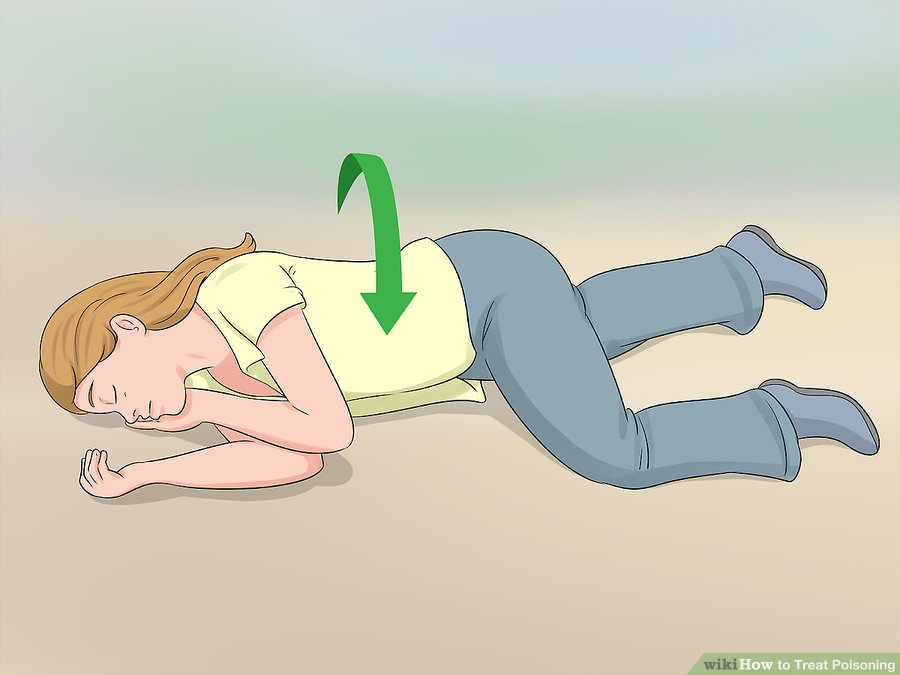
2: When the Poison Was Inhaled
1. Call for emergency help (see "EMERGENCY NUMBERS" above)
Poisoning by inhalation can lead to serious medical issues, and it's important to get emergency medical professionals involved. Inhalation could also affect others nearby, so don't try to handle the situation by yourself.
2. Leave the toxic area immediately
Poisoning by inhalation can occur as a result of toxic fumes, smoke, or gas. Move the person, and anyone else in the vicinity, to an area safe from these substances. It's best to go outdoors, well away from the building where the inhalation occurred.
- If you have to rescue the person from a building, hold your breath as you go in. Cover your mouth and nose with a wet piece of cloth to filter the air.
- Some toxic gases, like carbon monoxide, don't have a smell and can't be detected except by a special detector. Don't assume that just because you don't smell or see something toxic, a room or building is safe.
- If it's impossible to move the person, open the doors and windows to let fresh air inside and let the fumes or gas escape.
- Don't light a match or a fire, since some invisible gases are flammable.
3. Check the person's breathing and pulse
If you don't feel breath or a pulse, administer CPR immediately. Continue checking the person's breathing and pulse every five minutes until emergency help arrives.
4. Keep the person comfortable until paramedics come
Have the person lie down on his or her side, so that he or she won't choke in case of vomiting. Cushion the person's head with a pillow, and remove constrictive clothing and jewellery.
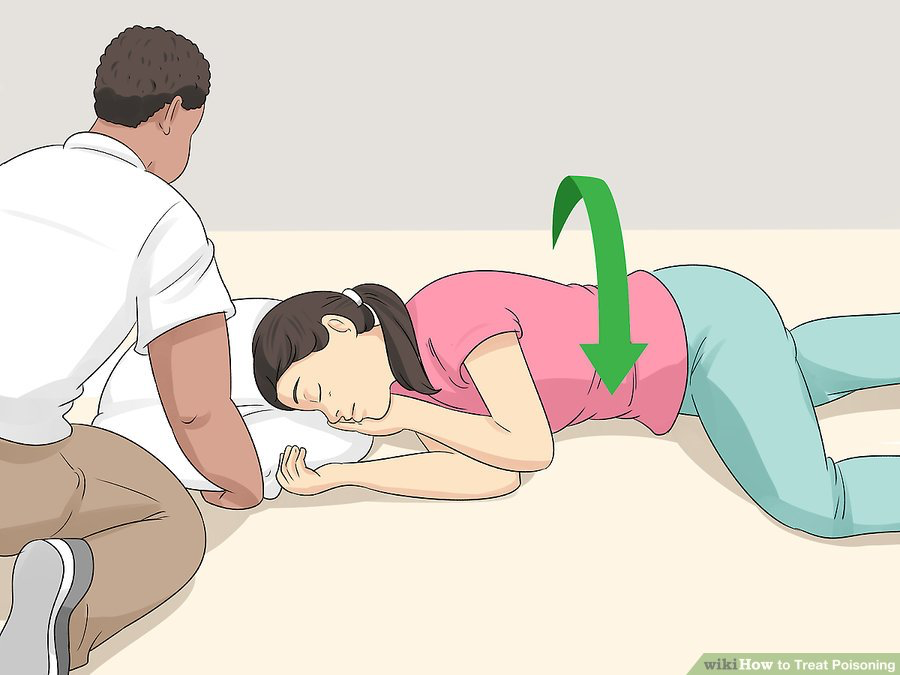
3: When the Poison Came into Contact With the Skin or Eyes
1. Call the poison control center for a conscious (awake and alert) victim
This will enable you to seek specific advice on treating the victim. Stay on the phone and follow all the instructions given to you by emergency assistance or the poison control center.
- If the person's skin or eyes were exposed to a corrosive substance, have the bottle ready so you can describe it to the poison control center attendant.
- Some containers have information about what to do in case of skin contact; take those instructions into account as well.
2. Remove traces of the substance
If the poison is a skin corrosive, remove the victim's clothing from the injured area. Discard the clothing, since it will no longer be wearable and could injure someone else. Be sure there's no chance that you or the person who has been poisoned will suffer more exposure to the substance.
3. Flush the area with lukewarm water
Run lukewarm water over the skin or eyes, whatever was exposed, for 15 to 20 minutes. If a burning sensation persists, keep flushing the area until medical help can be obtained.
- If the poison has come in contact with the victim's eyes, ask the person to blink a lot but to avoid rubbing his or her eyes, since this could cause further damage.
- Don't use hot or cold water to flush the area.
_______________________________________________________________________________________________________________________
Are you a healthcare practitioner who enjoys patient education, interaction and communication?
If so, we invite you to criticise, contribute to or help improve our content. We find that many practicing doctors who regularly communicate with patients develop novel and often highly effective ways to convey complex medical information in a simplified, accurate and compassionate manner.
MedSquirrel is a shared knowledge, collective intelligence digital platform developed to share medical expertise between doctors and patients. We support collaboration, as opposed to competition, between all members of the healthcare profession and are striving towards the provision of peer reviewed, accurate and simplified medical information to patients. Please share your unique communication style, experience and insights with a wider audience of patients, as well as your colleagues, by contributing to our digital platform.
Your contribution will be credited to you and your name, practice and field of interest will be made visible to the world. (Contact us via the orange feed-back button on the right).
Disclaimer:
MedSquirrel is a shared knowledge, collective intelligence digital platform developed to share medical knowledge between doctors and patients. If you are a healthcare practitioner, we invite you to criticise, contribute or help improve our content. We support collaboration among all members of the healthcare profession since we strive for the provision of world-class, peer-reviewed, accurate and transparent medical information.
MedSquirrel should not be used for diagnosis, treatment or prescription. Always refer any questions about diagnosis, treatment or prescription to your Doctor.

